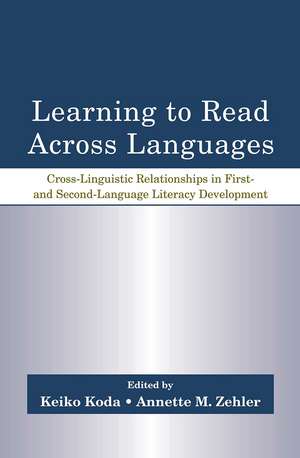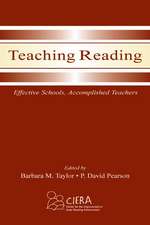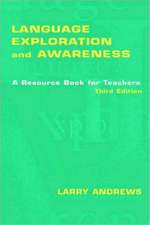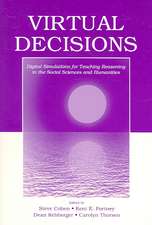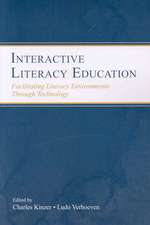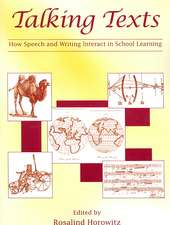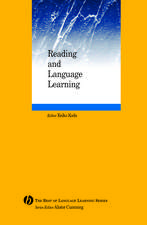Learning to Read Across Languages: Cross-Linguistic Relationships in First- and Second-Language Literacy Development
Editat de Keiko Koda, Annette M. Zehleren Limba Engleză Paperback – 29 oct 2007
This volume provides detailed descriptions of five typologically diverse languages and their writing systems, and offers comparisons of learning-to-read experiences in these languages. Specifically, it addresses the requisite competencies in learning to read in each of the languages, how language and writing system properties affect the way children learn to read, and the extent and ways in which literacy learning experience in one language can play a role in subsequent reading development in another. Both common and distinct aspects of literacy learning experiences across languages are identified, thus establishing a basis for determining which skills are available for transfer in second-language reading development.
Learning to Read Across Languages is intended for researchers and advanced students in the areas of second-language learning, psycholinguistics, literacy, bilingualism, and cross-linguistic issues in language processing.
| Toate formatele și edițiile | Preț | Express |
|---|---|---|
| Paperback (1) | 456.52 lei 6-8 săpt. | |
| Taylor & Francis – 29 oct 2007 | 456.52 lei 6-8 săpt. | |
| Hardback (1) | 1273.35 lei 6-8 săpt. | |
| Taylor & Francis – 29 oct 2007 | 1273.35 lei 6-8 săpt. |
Preț: 456.52 lei
Nou
Puncte Express: 685
Preț estimativ în valută:
87.35€ • 91.20$ • 72.30£
87.35€ • 91.20$ • 72.30£
Carte tipărită la comandă
Livrare economică 05-19 aprilie
Preluare comenzi: 021 569.72.76
Specificații
ISBN-13: 9780805856125
ISBN-10: 0805856129
Pagini: 256
Dimensiuni: 152 x 229 x 14 mm
Greutate: 0.47 kg
Ediția:1
Editura: Taylor & Francis
Colecția Routledge
Locul publicării:Oxford, United Kingdom
ISBN-10: 0805856129
Pagini: 256
Dimensiuni: 152 x 229 x 14 mm
Greutate: 0.47 kg
Ediția:1
Editura: Taylor & Francis
Colecția Routledge
Locul publicării:Oxford, United Kingdom
Cuprins
Preface 1 Introduction: conceptualizing reading universals, cross-linguistic variations, and second language literacy development PART I Theoretical underpinnings 2 Learning to read: general principles and writing system variations 3 Conceptual and methodological issues in comparing metalinguistic awareness across languages 4 Impacts of prior literacy experience on second language learning to read PART II Languages, writing systems and learning to read Part II Introduction and glossary 5 Arabic literacy development and cross-linguistic effects in subsequent L2 literacy development 6 Learning to read Chinese: cognitive consequences of cross-language and writing system differences 7 Facets of metalinguistic awareness related to reading development in Hebrew: evidence from monolingual and bilingual children 8 Learning to read in Khmer 9 Literacy experience in Korean: implications for learning to read in a second language 10 Thinking back and looking forward
Descriere
This book systematically examines how learning to read occurs in diverse languages, and in so doing, explores how literacy is learned in a second language by learners who have achieved at least basic reading skills in their first language. As a consequence of rapid globalization, such learners are a large and growing segment of the school population worldwide, and an increasing number of schools are challenged by learners from a wide variety of languages, and with distinct prior literacy experiences. To succeed academically these learners must develop second-language literacy skills, yet little is known about the ways in which they learn to read in their first languages, and even less about how the specific nature and level of their first-language literacy affects second-language reading development.
